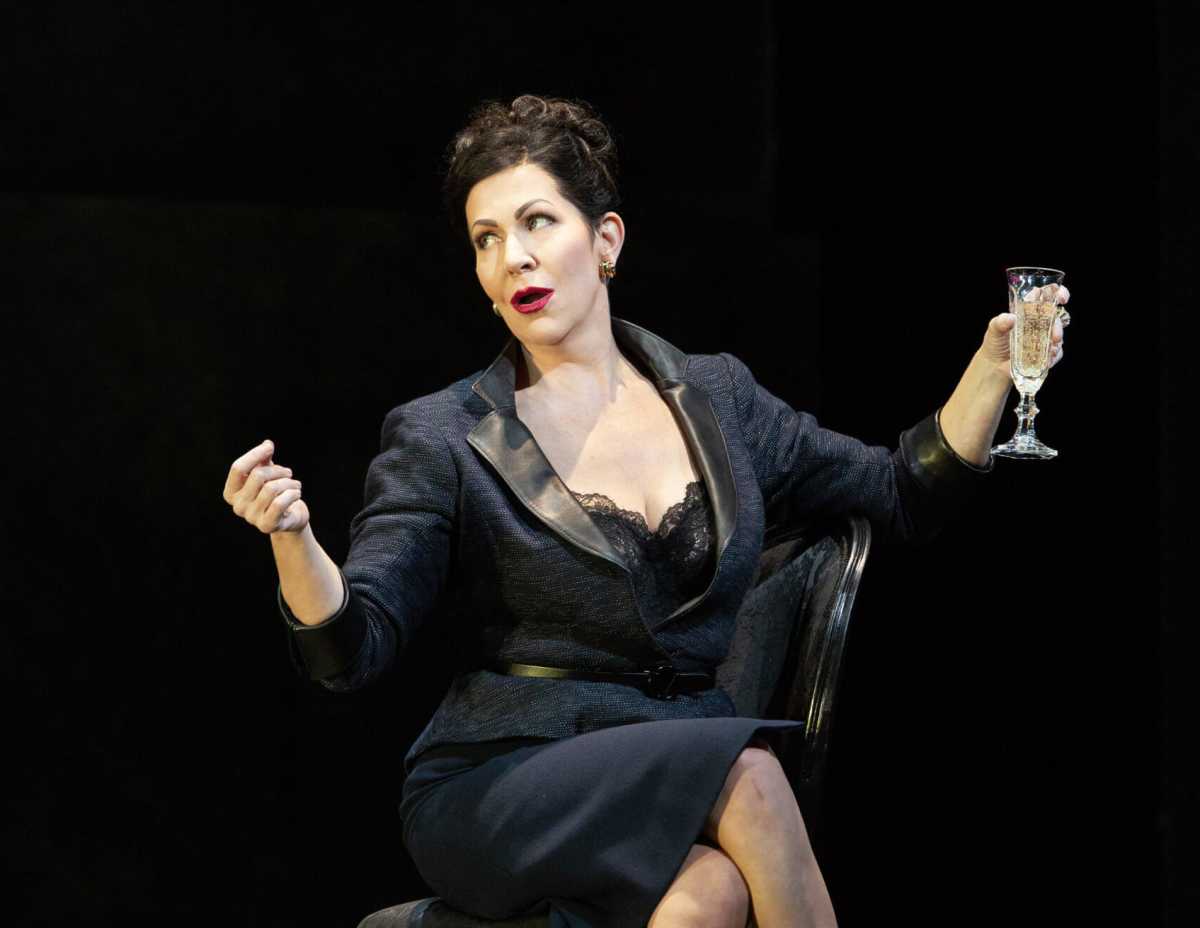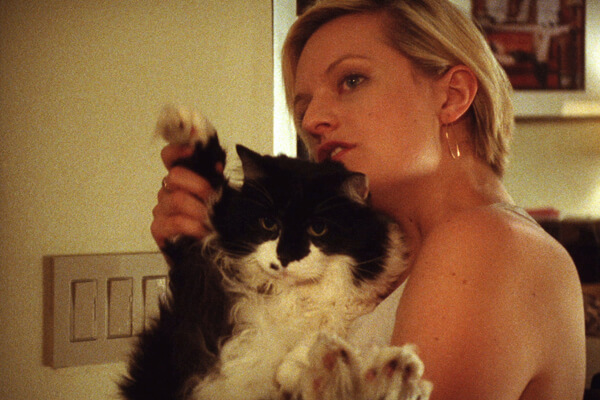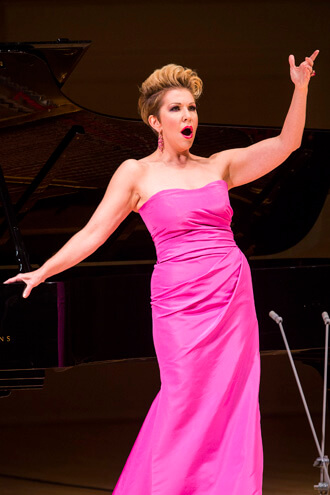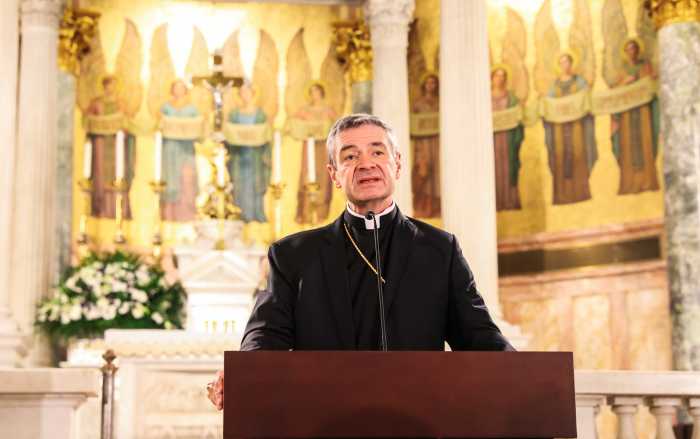The Metropolitan Opera has dipped its toe once again into the baroque repertory with the Met premiere of George Frideric Handel’s first hit opera “Agrippina” on February 6. “Agrippina” triumphed at its Venice premiere in 1709, establishing the international reputation of the 24-year-old Saxon-born composer. The Met programmed “Agrippina” as a vehicle for one of its smartest, most charismatic and musically versatile divas — mezzo-soprano Joyce DiDonato. The fourth wife of Emperor Claudius, Agrippina’s ambition to place her son Nero on the throne is the driving force of the opera. Highly seductive, powerful, and unscrupulous, Agrippina uses her formidable arsenal of guile and sex to achieve that goal.
Handel’s opera, set to a brilliantly satirical libretto by Cardinal Vincenzo Grimani, is a heady 18th century mashup of “I, Claudius” and “Dynasty,” with a bedroom farce and black comedy mixed in. It includes some of Handel’s best arias — including “Pensieri, voi mi tormentate,” “Bel piacere e godere,” and “Ogni vento” — revealing to Italy and the world Handel’s ability to write hit tunes. Women run the show in this opera — the scheming matron Agrippina is pitted against ambitious sex kitten Poppea and all the men in the opera are putty in their hands. Agrippina manipulates Poppea in Act I, and Poppea plots her payback in the succeeding two acts.
David McVicar’s “new” production updated to modern times is not all that new: It premiered at the Théâtre Royal de la Monnaie in Brussels back in 2000 and has traveled widely in the past two decades. Nor is “Agrippina” totally unknown to New York audiences — the New York City Opera staged “Agrippina” in 2002 and 2007 as part of its acclaimed Handel series. Lillian Groag’s amusing NYCO production was also updated and irreverent and not nearly as busy and overdone as this one. (I particularly remember the seductive Poppea making her entrance in a bubble bath). McVicar’s set and costume designer John Macfarlane updates ancient Rome to a minimalist present with mobile set pieces and wall panels shifting seamlessly around a central gold staircase leading up to an empty throne.
Both these “Agrippina” productions were influenced by the eighties Pepsico Summerfare productions of Mozart and Handel operas directed by enfant terrible Peter Sellars. The settings are updated to the hip present while a staged overture, omnipresent non-singing extras, sunglasses and trench coats, dry humping, boogieing onstage to the instrumental introductions, and characters shooting up drugs while singing florid arias high on speed are all present and accounted for. McVicar adds in twerking Navy officers, live video feeds, film projections, and cell phones to the Sellars playbook — layering endless sight gags on top of the genuine invention and wit in the libretto. A harpsichord solo played brilliantly onstage by Bradley Brookshire in a cocktail bar setting is reduced to accompaniment for extras swing dancing courtesy of choreographer Andrew George. Poppea sings her opening aria “Vaghe perle” to two swishy male friends. Her lover Otho performs the serious aria “Coronato il crin d’alloro” with two back-up dancer Navy boys gyrating beside him. The emperor playing golf onstage wearing a garish blue silk track suit perhaps alludes to a current political figure. Characters are seldom allowed to be alone onstage and are in constant movement executing frenetic physical business involving piles of props. It is all very busy and suggests that the director is convinced that the opera played straight would bore the audience with its formal structure, extended musical showpieces, and overall length.
McVicar is so focused on camp visual comedy that real moments of drama pass by unnoticed. One exception was Agrippina’s one moment of vulnerability — the unconventional tripartite aria “Pensieri, voi mi tormentate.” DiDonato delivered a simple moment of naked emotional truth alone onstage and the audience awarded her with a thunderous ovation. Part Mafia wife and part Mama Rose stage mother, DiDonato’s Agrippina is very much a star presence. She also is in lustrous focused voice with a virtuoso command of trills, staccato, and dynamics. She totally understands Handel’s musical idiom — how to shape long passages of ornamentation into the overall musical structure, how to vary and contrast musical repeats, and how to inflect words and music to find the emotional core of each aria. She also executes McVicar’s physical business adeptly but without letting it distract her or the audience from Handel’s music.
Other cast members let the hyperactivity blunt their singing: Juilliard-trained soprano Brenda Rae makes her Met debut as the empress’ rival Poppea with impressive coloratura technique but her unfocused vocalism and tentative musical phrasing failed to project to the audience. A committed actress who threw herself gamely around the stage, Rae’s Poppea is a hipster party girl with rotating outfits displaying her shapely legs. But Poppea’s sexual power must also be in the voice and Rae’s underpowered singing lacked impact. As Agrippina’s doltish son Nero (or Nerone in Italian), mezzo Kate Lindsey pranced around the stage like a coked-up Adam Ant or Billy Idol clone with (fake) neck tattoos, distressed T-shirt and jeans, a highlighted pompadour, and wannabe punk bad boy posturing. Lindsey acts with her entire slender body but McVicar overdid the crude crotch-grabbing shtick. Lindsey’s lean and bright mezzo sliced into her music with focused dark tones and agility. However, Nerone’s florid final aria “Come nube che fugge dal vento” was upstaged by Lindsey cutting and snorting a huge bag of cocaine resulting in skating over the sixteenth notes.
The character of Otho (Ottone), originally written for a female contralto, is the one sincere and genuinely good character in the opera. Countertenor Iestyn Davies possesses a plangent and lyrical sound well-suited to Ottone’s reflective and long-lined adagio arias, but less so to the florid allegro showpieces. As the foolish and lust-driven Emperor Claudius (Claudio), bass Matthew Rose is as usual a stalwartly imposing voice and presence but blustered unstylishly in his solos. As a Roman general seduced by Agrippina into becoming her co-conspirator, handsome Scottish baritone Duncan Rock pleased the eye but not the ear — his dry and grainy tone underwhelmed. As her other stooge, countertenor Nicholas Tamagna in his Met debut proved a find — a focused tone with presence and color and a droll comic actor.
Harry Bicket is the Met’s go-to conductor for classical and baroque repertory and managed to get feasible period style out of a modern big-house opera orchestra. Aided by baroque specialist instrumentalists Daniel Swenberg and John Lenti on theorbo and guitar, Bicket and members of the Met orchestra highlighted musical contrast and rhythm to dramatize the story.
Though I found McVicar’s bag of tricks tiresome after a while, the opening night audience ate it up, laughing and applauding enthusiastically throughout. So, as always, “Agrippina” triumphed in the end overcoming all the machinations against her.
Catch “Agrippina” live in HD in movie theaters worldwide on Saturday February 29 at 12:55 p.m. EST.


































